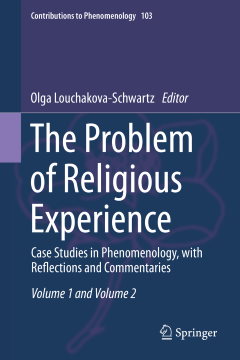Repository | Book | Chapter

(2019) The problem of religious experience, Dordrecht, Springer.
By both Plato and Aristotle wonder is understood as the beginning of philosophy. How does phenomenology relate to this tradition? And more specifically, how does phenomenology's central methodological step of reduction relate to wonder? I suggest that as a minimal understanding, we can start by describing wonder phenomenologically as the unresolved tension between the familiar and the strange. Looking at Husserl's Cartesian way to the reduction, I argue that rather than bringing wonder into focus, it dissolves wonder's inner tension because of Husserl's high standards of epistemic certainty. Marion, on the other hand, working out his notion of reduction in criticism of Husserl's, wants to pave the way for the pure givenness, in which case the "impurity" of the "between" pertaining to wonder also dissolves. The most fruitful approach is found in Merleau-Ponty's phenomenology, not only stressing the mystery and enigma at the heart of his phenomenological investigations but in fact identifying reduction with wonder. Finally, I want to sketch out how this position also relates to Merleau-Ponty's understanding of Christianity, especially incarnation, where wonder and mystery are exemplarily coming to expression.
Publication details
DOI: 10.1007/978-3-030-21575-0_4
Full citation:
Dahl, E. (2019)., Preserving wonder through the reduction: Husserl, Marion, and Merleau-Ponty, in O. Louchakova-Schwartz (ed.), The problem of religious experience, Dordrecht, Springer, pp. 57-75.
This document is unfortunately not available for download at the moment.



